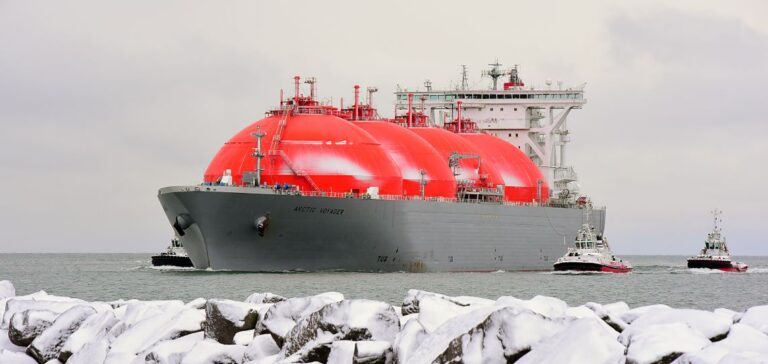France remains the primary importer of Russian liquefied natural gas (LNG) within the European Union, despite a decrease in its total gas consumption in 2024. According to the Institute for Energy Economics and Financial Analysis (IEEFA), approximately 34% of France’s LNG imports last year came from Russia, amounting to €2.68bn. This volume marks a significant increase of 81% compared to 2023. Despite this rise, Russia ranks second behind the United States but ahead of Algeria in the list of France’s LNG suppliers.
The role of Russian LNG in the French market
Russian LNG trade is not currently affected by sanctions imposed on other energy sectors, such as oil and coal. However, Russian pipeline gas deliveries have drastically fallen between 2021 and 2023, dropping to a third of their original level. In contrast, LNG imports have continued to rise. In 2024, Russian LNG volumes accounted for a significant portion of France’s imports, although experts stress that the situation remains complex to assess. The re-export of Russian LNG, notably to Germany, due to its more competitive price at certain times, may have contributed to this increase.
Geopolitical and economic implications of this dependency
While a ban on the transshipment of Russian LNG to non-EU countries is set to take effect in March 2025, Russian gas that remains on European soil, particularly in France, will not be impacted by this new measure. According to several analysts, the increase in Russian LNG imports to France may be linked to the use of reserved capacity at French LNG terminals by European companies, particularly to re-export gas to other EU countries. These flows have sparked discussions on Europe’s dependency on Russian gas, especially as French authorities highlight their commitment to reducing this dependence within the framework of the European energy strategy.
Responses from economic actors and French authorities
The French Ministry of the Economy stated that several European companies, having booked capacity at French LNG terminals, are now using these infrastructures to import increasing quantities of Russian LNG. TotalEnergies, which holds a stake in the Yamal LNG project in Russia, affirmed that it is acting in compliance with European Union decisions and reminded that its long-term contracts cannot be cancelled without incurring significant financial penalties.






















